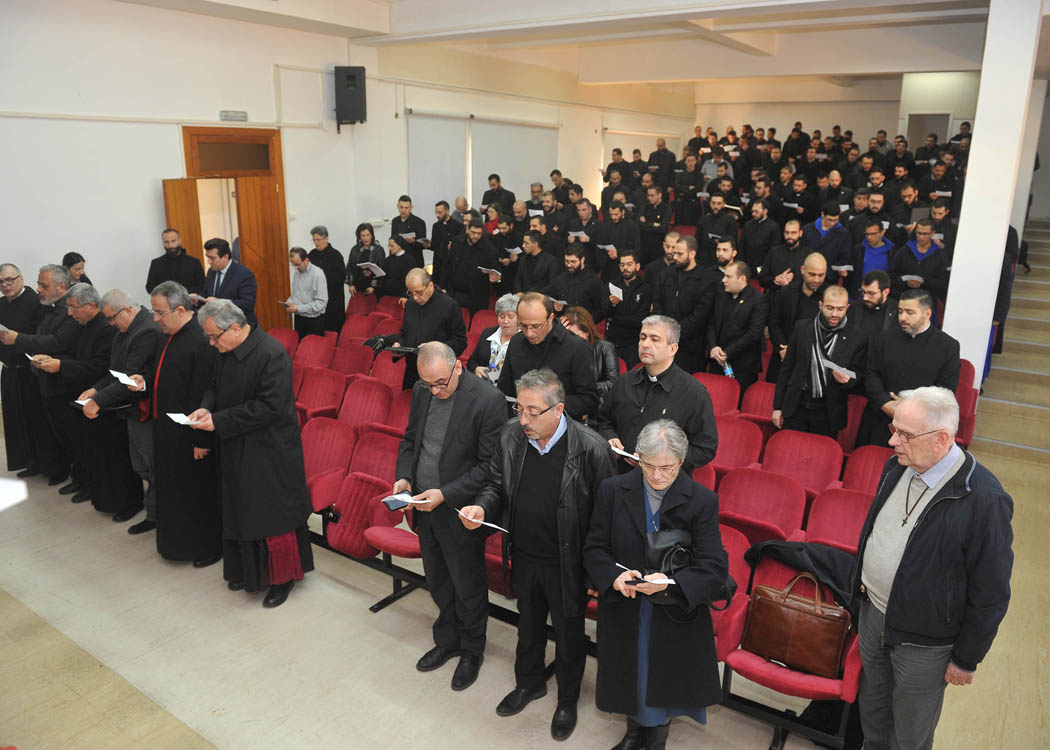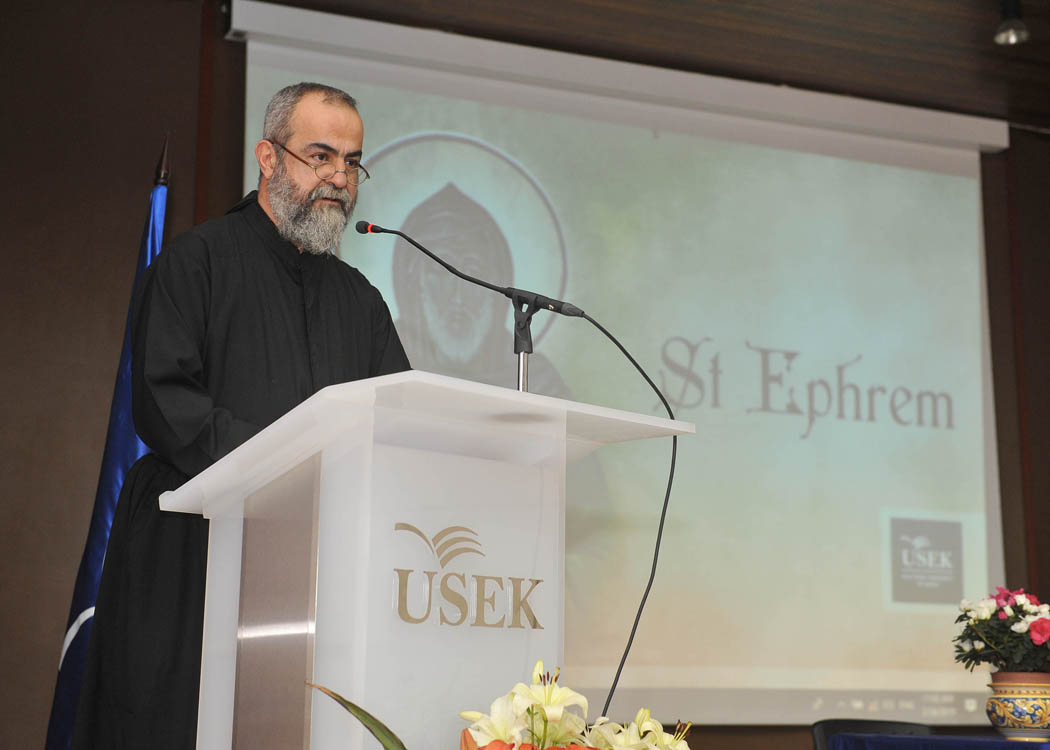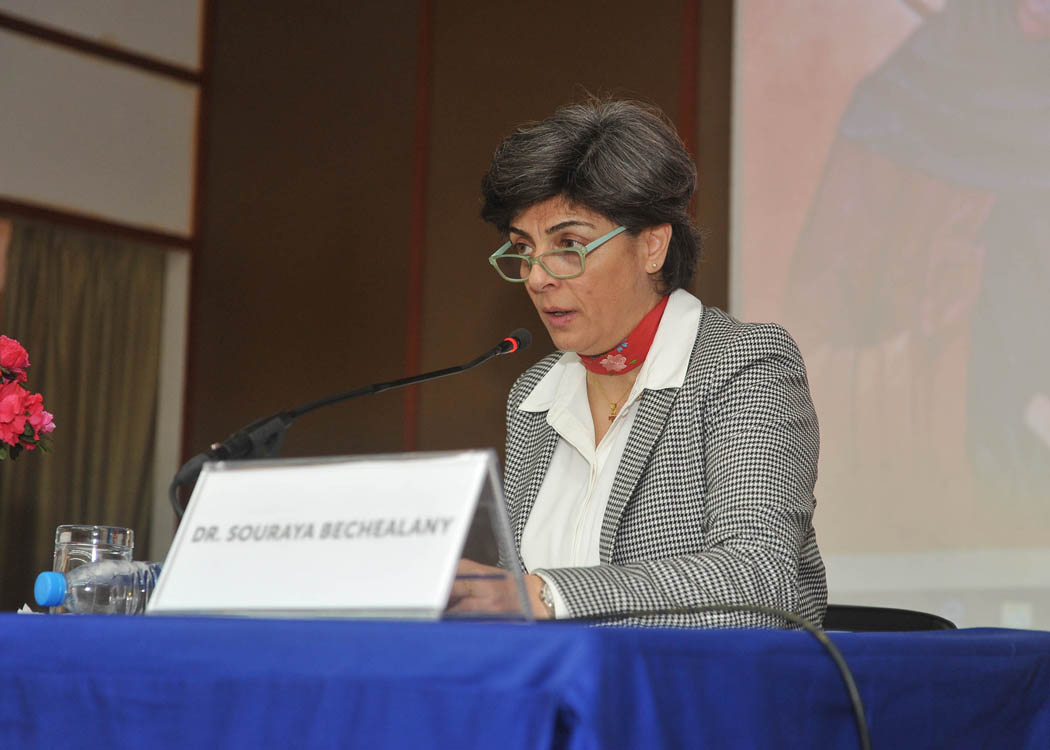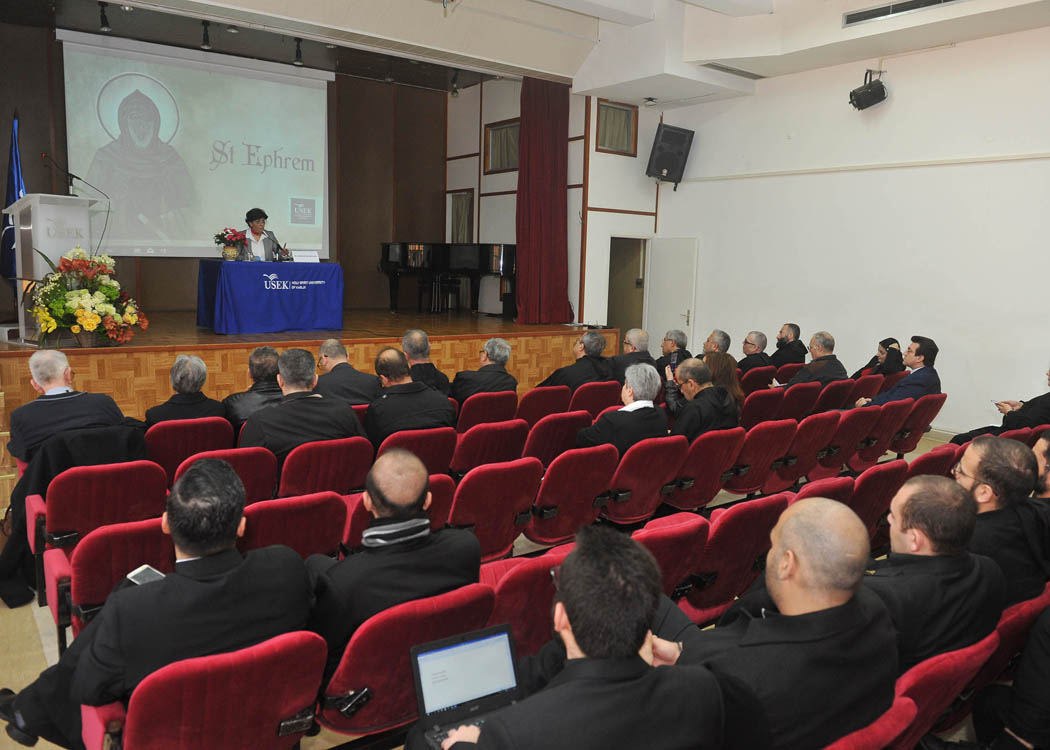Dr. Bechealany in a seminar about the Church Mission Today in the Middle East at the Holy Spirit University – Kaslik:
“Since our Churches belong to the Antiochian heritage, they must imitate their Mother Church: Adopting the culture of Arab societies, to become a local Church missionary to the Arab people”




On February 26, the feast day of St. Ephrem the Syrian, the Pontifical Faculty of Theology at the Holy Spirit University – Kaslik held a theological seminar tackling the issue of “The Church and its Mission in the Middle East Today” which hosted the Secretary General of the Middle East Council of Churches, in the presence of His Eminence the Patriarchal Vicar General Bishop Rafiq Warsha, and His Eminence Bishop Paul Rouhana, Auxiliary Bishop of Sarba, as well as an audience of priests, sisters, students of the Faculty of Theology, and friends.
The seminar was launched by Dean of the Faculty, Dr. Elias Jumhoury, who welcomed the Secretary General as Professor of theology saying: “Today we have a lady who is not alike other women. She addresses and sits with people of Holiness and Eminence in Lebanon, Syria, Egypt, Iraq, Cyprus and Jordan. This alone is a great church event.”
MECC Secretary General was then given the word. She extended her thanks to the Holy Spirit University USEK especially President, Professor George Hobeika, and to the Faculty of Theology especially Dean, Dr. Elias Jumhoury, for hosting and inviting her to speak about the Church, its mission, and the challenges today in the Middle East. Dr. Bechealany dealt with the subject from three aspects: the principle and the theological approach, the Church history and the present condition, and in the blown storm, a voice calling out: Whoever has ears will hear what the Spirit says to the Churches.
She added: “If we want to understand the meaning of the Christian presence in the Middle East today, we have look at the local churches with a 2000 years history blended with the particularities of peoples and cultures rooted in the Arab world. We read the signs of the Holy Spirit and hear what it says to the churches.”
Dr. Bechealany continued: “Since our churches belong to the Antiochian heritage, they must imitate their Mother Church by adopting the culture of Arab societies, to become a local Church missionary to the Arab people”. The Arab culture comes from us and is ours; it is knitted it in our heritage, our humanity, our concepts and beliefs, along with the Muslim heritage, humanity and beliefs. It is our common home, our common language and the cradle of our civilization. In this context, how can we not remember Youakim Moubarak, George Khodr, Jean Corbon, and all those who regarded Arabism as the mother of numerous children? It is the culture that overcomes the boundaries of nationality and faith, going beyond religious, social and political identities”.
She also wondered: “How can there be Christians in the Middle East without Muslims? How can there be Muslims without Christians? If one denies the other when it comes to humanity, history and culture, they inevitably deny themselves and their identity. The other person is an inseparable part of the entity, identity and mission of each of one of us.”
Dr. Bechealany concluded: “Let us be a Church of Hope in this Arab Levant, let us be the Church of the East, from which shone the Sun of Justice, our Lord, our God and Savior Jesus Christ. Hope is not at the end of the road; hope is the road that we take to reach the resurrection of Christ. It is the different person, thanks to whom I am here when I put myself at his service, and without whom my faith, my love and my hope have no meaning”.
